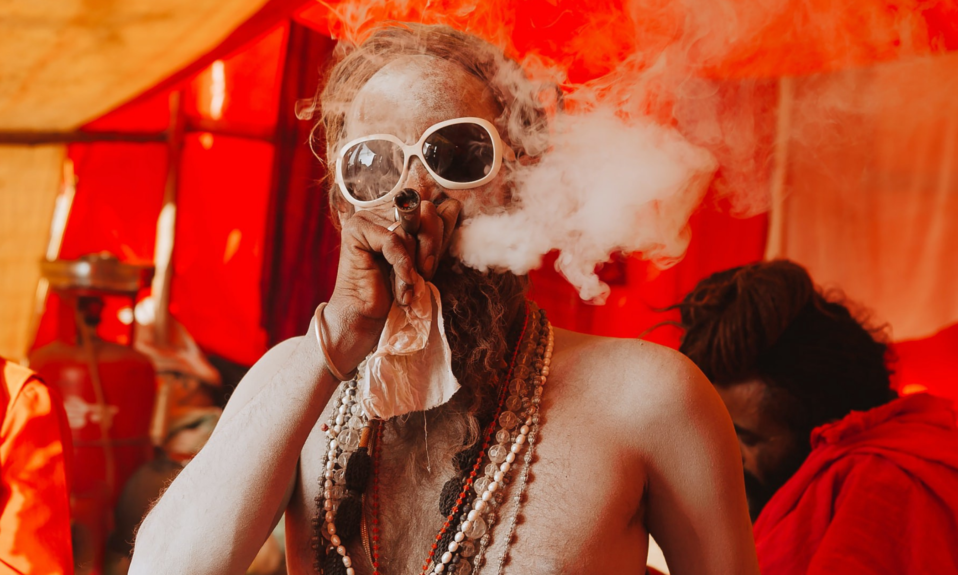
If you’ve landed on this page, that means that you’re either travelling to India and you’re interested in finding out the legal status of marijuana in this country, or you’re simply a person who is checking out to see the latest developments in the field of allowed and restricted substances.
So, if you’re asking yourself marijuana is illegal in India, the answer would be no. Actually, No and yes in some areas, we will get more details in the following rows in some particular circumstances. It’s a rather tricky situation, and it also involves specific laws for various substances.
Since marijuana is widely considered a recreational drug worldwide and has been a ceremonial substance used in India for millennia, people are already forming movements to lift the ban on this ancestral plant so beloved by the Indian and global population.
But let’s get into some fascinating details and facts about weed or marijuana, which we discovered during our research.
- Is Weed or Marijuana Legal in India?
- Places Where Weed is Legal in India as of 2021
- ​History of Cannabis in India
- What Does the Law Say About Weed or Marijuana?
- Is Smoking Weed Legal in India?
- Punishments for Smoking Weed in India
- Recreational and Medical Use of Weed
- Weed Around the World
- Sources:
Is Weed or Marijuana Legal in India?
The short answer for such a frequently asked question would be “NO!” But there are so many nuances about the legal statute of marijuana in India. It all dates back to the Narcotics Drugs and Psychotropic Substances Act, 1985, also known as the NDPS Act of 1985.ÂÂÂÂÂÂÂÂÂÂ
The NDPS Act defines what’s illegal and what’s legal when it comes to the cannabis plant as follows:
Charas, the “the separated resin, in any form whatsoever, crude or purified, obtained from the cannabis plant is illegal. Also, charas includes various concentrated preparation forms and resin known as hashish oil or liquid hashish.”
Ganja, defined as “the flowering or fruiting tops of the cannabis plant (excluding the seeds and leaves when not accompanied by the tops),” is also illegal according to the same legal Act.
And last but not least, “any mixture, with or without any neutral material, of any of the above forms of cannabis or any drink prepared from that place” is also illegal in India.
The current Act prohibits the sale and production of cannabis resin and flowers, while the use of seeds and leaves is legally permitted. India’s government also enforces strict punishments for anyone who doesn’t adhere to these laws and regulations.
Places Where Weed is Legal in India as of 2021
Marijuana is legal in India, but only under particular rules, guidelines, regulations and only in a couple of states. In 2021, you can smoke Weed in India only under certain circumstances, such as rituals, religious festivals, or medicinal purposes.
Bhang, a cannabis derivative, is still extremely popular in India, and it is highly consumed all over the country. Although illegal, it is usually tolerated if you drink it behind closed doors.
Bhang is mixed in thandai, which is milkshake-like preparation and consumed to praise Lord Shiva. It’s very appreciated and popular between Mahashivaratri and Holi (February–March).
When it comes to the Sikh Nihangs group, bhang is also popular, mainly during Hola Mohalla. Indian Sufis consider that the spirit of Khidr lies within the cannabis plant and consumes bhang to become one with the soul.
Odisha is one of the rare places where cannabis consumption is entirely legal in India. It is ubiquitous to see people on the street smoking chillums daily without any fear of legal repercussions.
​History of Cannabis in India
You’re probably still wondering and asking yourself, “is ganja legal in India or not” and you still can’t understand how a country with such a long tradition involving the consumption of cannabis has become so strict against this plant over the past half a century.
Although nobody knows when cannabis consumption started in India or how long this plant is cultivating throughout the country (and the continent, for that matter), historical records dating back to 3,000 BC prove that Indians consumed cannabis even back then.
From 1,000 BC and to the present day, people in India have been depicted in many drawings, paintings and there are many writings about religious rituals involving cannabis consumption. This is historical proof that cannabis has been consumed in India for over one thousand years on a vast scale.
The plant is vastly associated with Lord Shiva, and people who smoke marijuana in religious rituals feel like they are invoking his spirit and getting closer to the Indian deity.
After the British conquest of India, regulations were rapidly put into place to make cannabis or bhang illegal or highly taxed for the colonial government to add more money to its coffers.
The British have not criminalized cannabis and tried to profit from the Indians’ love for this plant and their secular tradition of evolving cannabis and its derivatives.
Since 1961, cannabis has been outlawed, being reclassified as a hard drug, making it highly illegal for anyone to consume marijuana in India. Today, several movements are trying to bring cannabis use back into legality, and the chances are that this will soon happen.
It all depends on how the Indian people will manage to group up against this law that has been enforced against the population’s will, based on international pressure upon the Indian government of 1961.
Since then, a lot has changed. More countries are legalizing marijuana for its benefits and medicinal uses, as it is widely regarded as having less (to none) terrible side effects. Considering that the tobacco and alcohol industry has such a long tradition, they are considered by many the ones that are trying to keep cannabis illegal for as long as possible.
They fear that as soon as marijuana becomes illegal, many people will switch from consuming alcohol and cigarettes to the less damaging cannabis plant consumption.
What Does the Law Say About Weed or Marijuana?
The current Indian law strictly forbids the use, consumption, selling, or distribution of marijuana, weed, cannabis, and other related substances extracted from the same plant. So, if you’re asking yourself if cannabis is legal in India, the answer would be no, but there are a few ways around these regulations.
For example, the law states that you can smoke marijuana legally, but only in the states of Odisha and Gujarat, where you will not face any punishment for consuming this plant. This is one of the favorite destinations for people who want to smoke legally and not face severe fines or even years of imprisonment.
Another way to legally smoke ganja in India is to get a medicinal marijuana license from a specialized doctor. Preferably, this license should be acquired from a governmental doctor, not from private practice, as this way you will increase your chances of smoking freely and legally, anywhere in India.
Is Smoking Weed Legal in India?
Is ganja illegal in India? No! Based on the laws passed in 1961, marijuana became unlawful statewide in India after several attempts by the British colonial government to impose a ban on this plant. This makes weed, marijuana, cannabis, hashish, and other plants and derivatives containing THC unlawful.
Cannabis is still considered a hard drug in India, although many movements advocate removing this plant from the hard drug list, as there is no scientific proof for it to be classified as such.
Many groups and online forum discussions are pushing for the legalization of cannabis in India. They feel that this plant causes a lot less harm than alcohol and cigarettes, which are legal all over the country and in most parts of the world.
Ganja is legally defined as “the flowering or fruiting tops of the cannabis plant (excluding the seeds and leaves when not accompanied by the tops),” according to the Narcotics Drugs and Psychotropic Substances Act, 1985. Until this Act has been revoked from the Indian Constitution, marijuana will continue to remain illegal.
Punishments for Smoking Weed in India
Suppose you’re still checking Google using terms like “weed legal in India” or anything related to the subject. In that case, that means that you’re interested in knowing whether or not you can smoke, buy, or sell marijuana in India.
Before you decide on doing anything like that, it’s safer to check out the severe punishments that the Indian judicial system has in store for anyone caught smoking, possessing, or commercializing weed inside the country’s territory.
According to Section 20 of the NDPS Act (Narcotics Drugs and Psychotropic Substances) of 1985, severe punishments await any wrong-doers to break the cannabis laws enforced in India.
- First of all, if the police or special narcotics forces catch you with a small quantity, you’re facing up to 6 months of strict imprisonment and an INR 10,000 ($134) fine. In most situations, you get charged with both penalties, so be sure to act responsibly.
- If you possess a quantity lower than the legal, commercial quantity, up to 10 years of imprisonment is what you could face in addition to an INR 1 lakh ($1,342), which you have to pay if you ever want to cling on to the hope that you might get out from jail earlier.
- In India, possessing cannabis or cannabis resin (charas and hashish) in small quantities and up to commercial quantities (which is defined as 100 grams to 1 kilogram) could get you in serious trouble. Getting caught with commercial quantities in your possession will sentence you to at least 10 years in prison. In some cases, stricter judges have handed out even 20 years of imprisonment and a fine up to INR 2 lakh ($2,684).
- All of the above punishments cannot be handed out to people under the legal age of 18 in India, according to the Juvenile Justice Act, which stipulates different rules and punishment for minors found in possession, consuming, or selling cannabis (weed, marijuana, and any other of its derivatives).
Recreational and Medical Use of Weed
Smoking weed in India has been a favourite pastime for people since “the beginning of time,” as some old people like to define it. Mostly, anything revolving around cannabis in India has a lot to do with its traditions, myths, and ancient customs, as this plant has been used in rituals and customs for thousands and thousands of years.
Marijuana smoking also has a recreational purpose, helping people in India, and all over the world for that matter, to relax, unwind, and lay back after a long hard day at work. It also acts as a social drug, much like alcohol, which brings friends together to talk, eat and share a few laughs.
However, given that marijuana use is illegal in India, this activity mostly happens behind closed doors since 1961, when weed consumption, possession, and selling has been made illegal at a national level (with very few specific exceptions).
Weed Around the World
Cannabis is one of the world’s most popular drugs, and more and more countries are quickly beginning to legalize it in all forms, shapes, and sizes. It’s the natural course of things, given that it has been proven to be less damaging than alcohol, nicotine, and even caffeine.
Marijuana in India may not be legal just yet, but here’s a list of countries where you can freely smoke weed without having to fear severe imprisonment or hefty fines you have to pay to settle the case.
Countries that have legalized recreational use of cannabis are:
Canada, Georgia, Mexico, South Africa, and Uruguay, plus 18 American states, 2 American territories, and the District of Columbia in the United States and the Australian Capital Territory in Australia.
- Commercial sale of recreational cannabis is legalized nationwide in two countries: (Canada and Uruguay) and in all subnational U.S. jurisdictions that have already legalized possession of cannabis, except for Washington, D.C.
- Countries where you can legally sell and consume marijuana and derivatives in licensed shops: Netherlands
- Countries that have legalized the medical use of cannabis: Argentina, Australia, Barbados, Brazil, Canada, Chile, Colombia, Croatia, Cyprus, Czech Republic, Denmark, Ecuador, Finland, Germany, Greece, Ireland, Israel, Italy, Jamaica, Lebanon, Lithuania, Luxembourg, Malawi, Malta, the Netherlands, New Zealand, North Macedonia, Norway, Peru, Poland, Portugal, Rwanda, Saint Vincent and the Grenadines, San Marino, Sri Lanka, Switzerland, Thailand, the United Kingdom, Uruguay, Vanuatu, Zambia, and Zimbabwe.
- Countries with more restrictive laws that allow strictly the use of certain cannabis-derived pharmaceuticals, such as Sativex, Marinol, or Epidiolex:
36 U.S. states, four territories, and the District of Columbia have legalized the medical use of cannabis, but it is currently still prohibited at the federal level.
Conclusion
It’s pretty hard to predict how the laws and regulations regarding the use of marijuana, cannabis, weed, bhang, ganja, or charas will evolve during the next couple of decades. Still, most likely, we will see a revolution in this field.
People and lawmakers are bringing more and more arguments that marijuana should be re-legalized in India, as it has been a legal substance consumed by Indians for thousands of years without any problems whatsoever/
Is marijuana legal in India yet? No, but that doesn’t mean that laws will not change very shortly, given that some states already allow various forms of cannabis and cannabis extracts to be consumed and commercialized. It’s the way of the future, and this is what’s happening all around us.
The United States has already legalized weed in most of its states. Spain has legalized marijuana consumption. The Netherlands has been a pioneer in this field for years. We can only guess that India will follow suit in the next 2 to 5 years, if not sooner.
FAQ’S
What happens if you get caught with Weed in India?
Based on the quantity of weed you get caught with and depending on the state, you may get a different punishment in India.
- If you get caught possessing a small quantity, you could be facing rigorous imprisonment for up to 6 months, or you could be fined up to INR 10,000 ($134), or even both, depending on who gives the sentence.
- Should you get caught having a quantity less than the legally considered commercial quantity but greater than the legally defined small quantity, you could face imprisonment of up to 10 years plus a fine that may extend to INR 1 lakh ($1,342).
- In addition to imprisonment, you may also be fined no less than INR 1 lakh ($1,342), which can also be doubled to INR 2 lakh ($2,684). This harsh sentence applies if you ever get caught in India with cannabis and cannabis resin (charas and hashish) having small quantities and up to commercial quantities (which is defined as 100 grams to 1 kilogram). If you are caught with commercial quantities, you will be charged with imprisonment of no less than ten years, and in some drastic situations, it can even extend to 20 years in jail.
In addition to these laws and regulations. The Juvenile Justice Act provides separate rules and punishment for minors found in possession, consuming, or selling cannabis (weed, marijuana, and so on). People below the age of 18 cannot and shall not be prosecuted under the NDPS Act.
Where is weed legal in India?
Although weed is illegal in India, there are a couple of Indian states where marijuana is legal. Odisha and Gujarat are the two states that offer legal status for marijuana consumption. However, it is a well-known fact that weed is consumed all over the country, and it has been that way since immemorial times.
How to get a license to smoke Weed in India?
Since marijuana is not legal in India, you need to acquire a medicinal license for cannabis use to smoke weed in this country legally. The fastest way to obtain such a license for smoking weed in India is to go through the process of receiving a “medical card,” which allows you to consume marijuana and marijuana-related substances.
You will be required to visit a psychiatrist, recommended to be a government doctor, and ask him to prescribe you medicinal marijuana for therapeutic uses. This way, you will be able to legally purchase marijuana from governmentally approved dealers located in the hospitals in your city.
Another way to legally smoke Weed in India without obtaining a medicinal marijuana license is to become a sadhu or agora, as they have legal permission to consume cannabis and any derivatives.
Why is weed illegal in India?
Throughout India’s history, the Imperial British government made several attempts at criminalizing cannabis in 1838, 1871, and 1877. However, cannabis has been consumed in India legally and traditionally for millennia and only got banned after the 1961 international treaty Single Convention on Narcotic Drugs.
That’s when cannabis has been officially classified as a hard drug, although the Indian delegation made solid efforts to oppose this measure, evoking social and religious customs in India. The compromise was that India had to limit the hemp export. The treaty came up with the following definition for cannabis: “Cannabis” means the flowering or fruiting tops of the cannabis plant (excluding the seeds and leaves when not accompanied by the tops) from which the resin has not been extracted, by whatever name they may be designated.
Sources:
2. https://www.thenewsminute.com/




